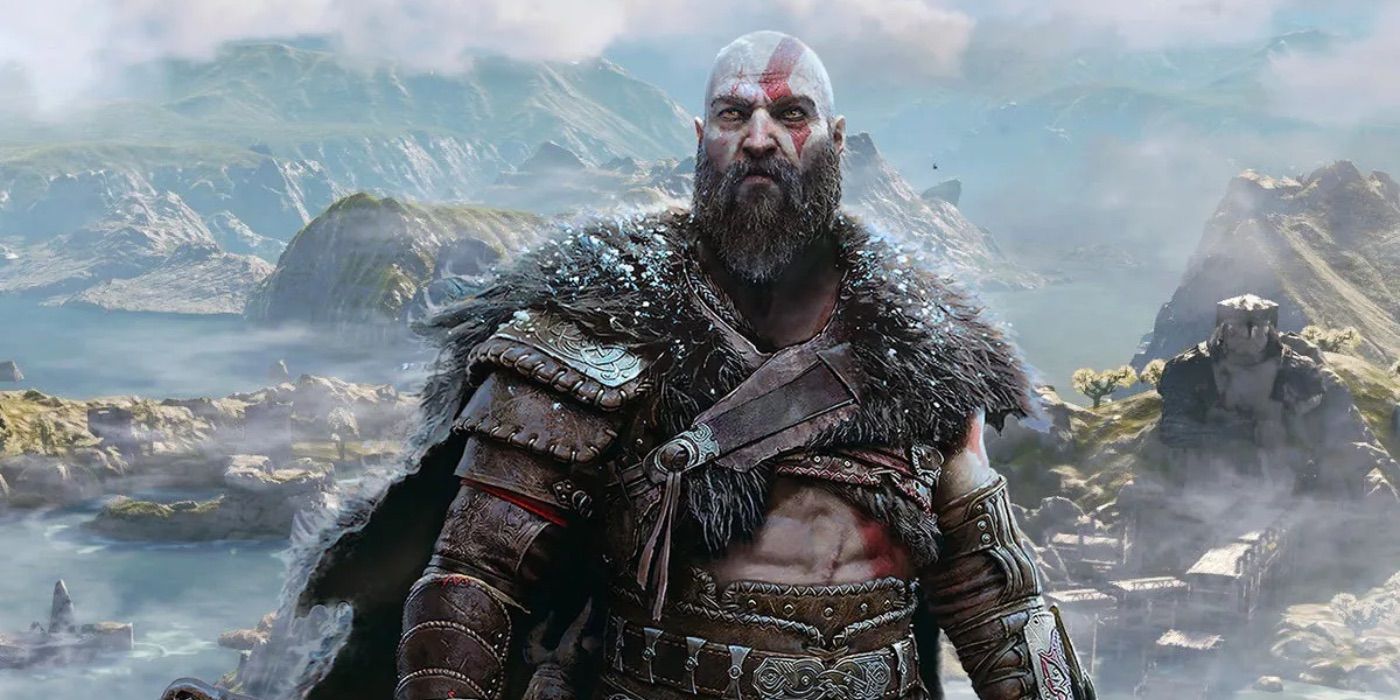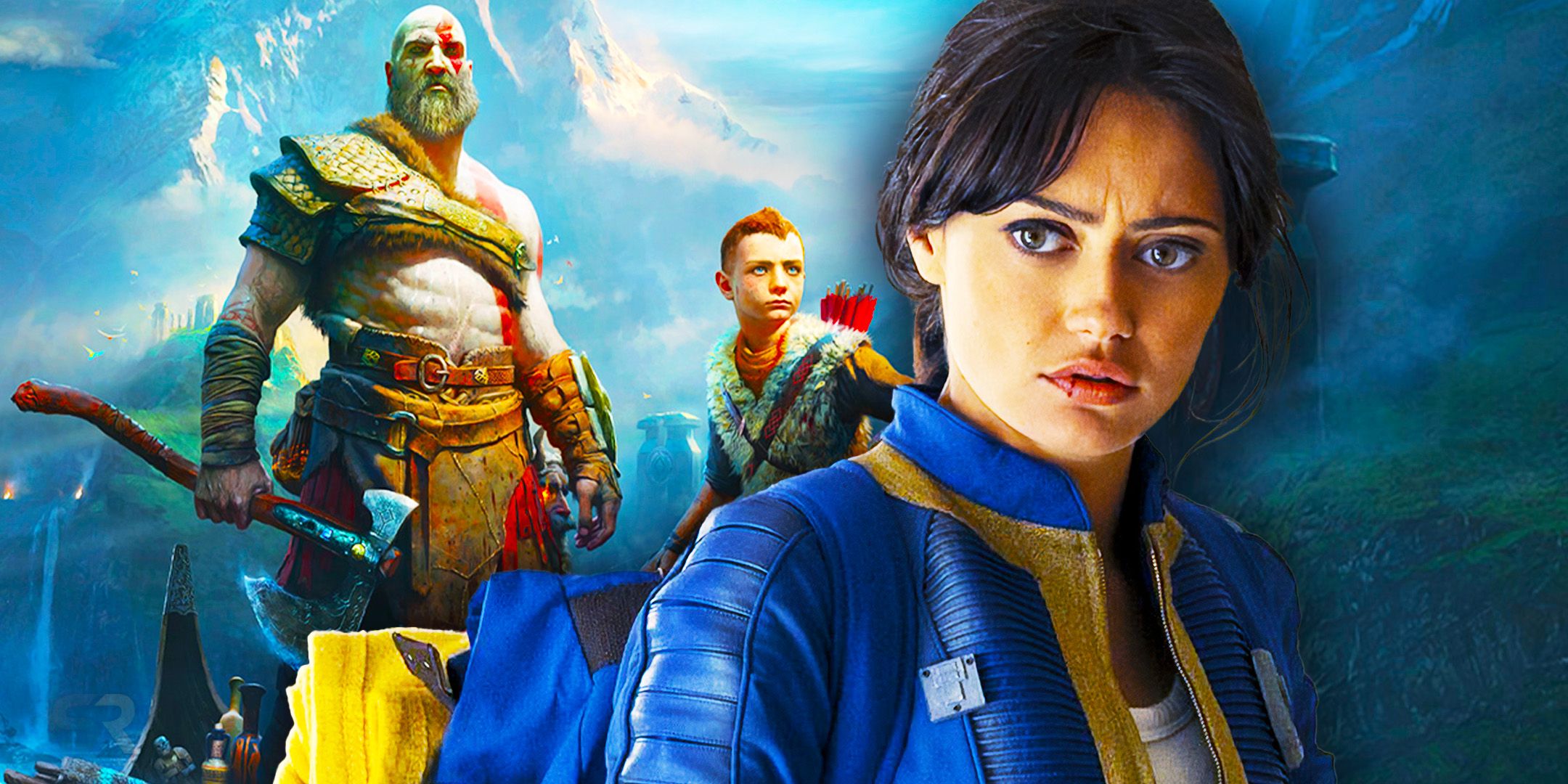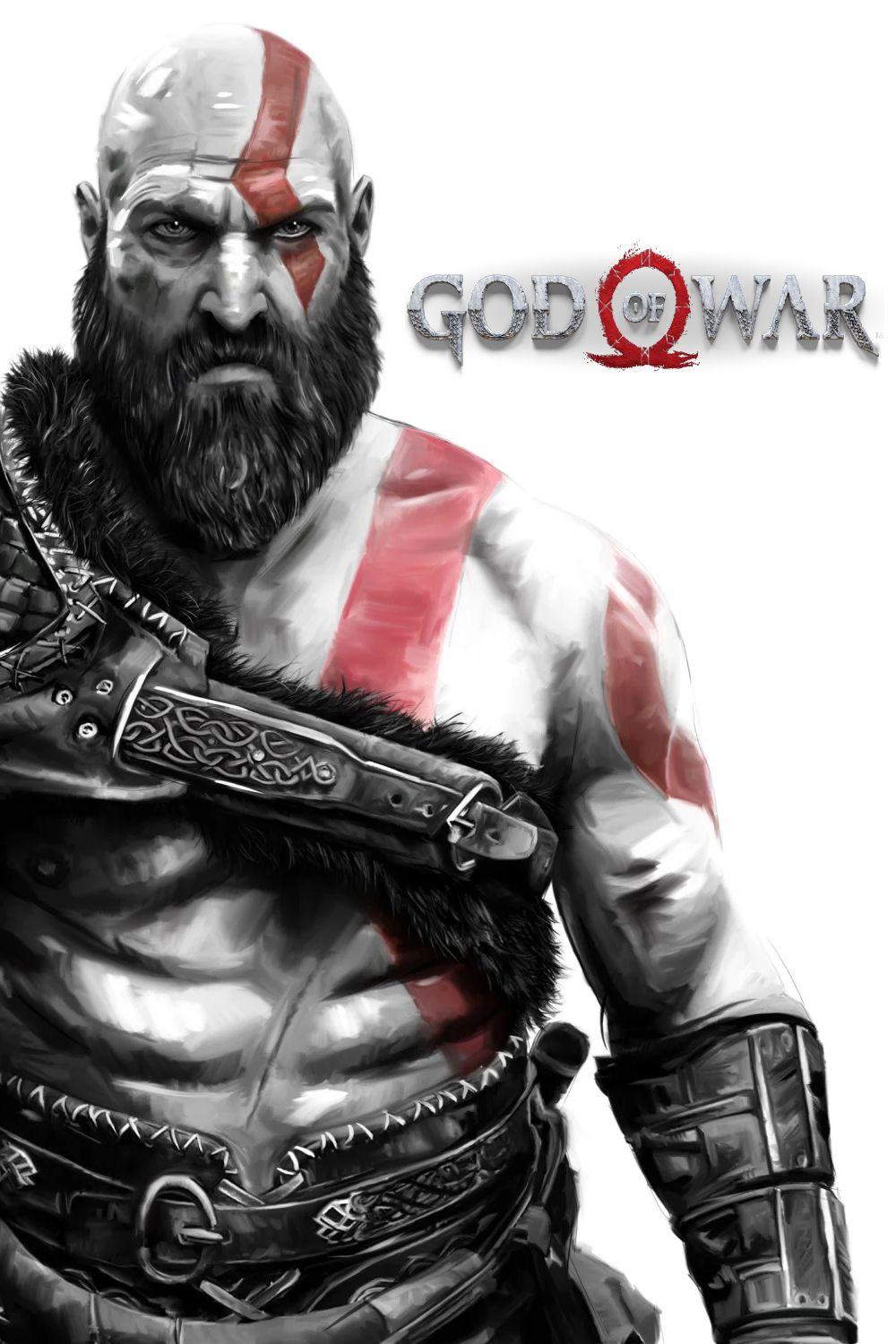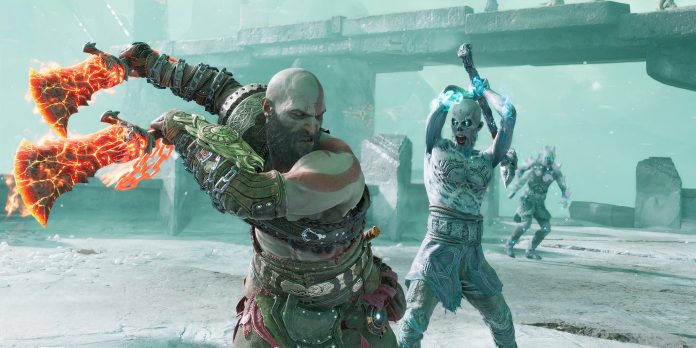Prime Video’s upcoming adaptation of God of War has chosen which era of Kratos’ story it will depict. The God of War video games are famously split into two main eras: Kratos’ time in Ancient Greek mythology and his time in Norse mythology. Prime Video’s God of War adaptation was always going to have to choose which era to focus on, and that decision has already been made.
While speaking with IGN, God of War showrunner and executive producer Ronald D. Moore confirmed that the Prime Video adaptation will focus on Kratos’ time in Norse mythology, not Greek mythology.
It was just when I started watching it, I started looking at the cutscenes together, and there’s so much material there, and I really responded to the characters. I responded to the story of Kratos and his son, and then they set out on this epic journey in this world that was finely detailed and really interesting, and there’s a lot of combat and interesting monsters along the way.
But I kept coming back to this story of father and son, and it was just emotional and it was different, and I hadn’t seen anything like that before, and I had no expectations because like you said, I’m not a gamer. I knew the title, but I didn’t really know what the story was, so I didn’t really know what I was going to be looking at, and I was just taken with it. And so I said, yeah, I’d love to do it. I think it’s really interesting.
The tone of the show is trying to emulate the tone of the game, which is there’s this epic journey, this heartfelt story of these two men setting out on this thing to honor the memory of his wife, Atreus’ mother. So it has this emotional heart, but there’s this sense of history of who Kratos is, this mystery about his past, what he represents, the emotions that he’s going through. So there’s a weight to it, but not so much weight that there’s not enjoyment along the way and there’s spectacle and there’s lots of things going on in this world.
Well, again, we want to honor the game and what they laid out for Atreus’ journey. Here’s a young man who doesn’t know his father very well, that sets out on this mission, and along the way they learn about each other.
Moore noted that Kratos’ relationship with his son, Atreus, was the main reason for that decision. Since Atreus wasn’t alive for any of the Greek games, Prime Video’s God of War show is primarily adapting God of War 2018. That means Kratos and Atreus will be making their journey from their home to Jötunheim to scatter Faye’s ashes.
It’s also worth noting that Moore’s take on God of War isn’t going to ignore the Greek games entirely. As Moore mentioned, the God of War show is going to focus on Atreus learning more about his father and his dark past, which means the Greek games are going to be in the show in some form. Whether that means flashbacks or spoken revelations remains to be seen.
What Focusing On The Norse Era Of God Of War Means For Prime Video’s TV Adaptation
The Norse Era Is More Current & Popular, But There Are Plenty Of Parts Of The Greek Era That The Show Will Miss Out On
Though skipping over the first three God of War games and their spinoffs may be a divisive decision, it makes sense. God of War 2018 and God of War: Ragnarök have been massive, recent hits, and there’s a larger following for them than the earlier games. The show is also going to incorporate the earlier games in some way, so Moore seems to have found the best of both worlds.

Related
Amazon’s God Of War Showrunner Gives Exciting Production Update
Exclusive: Amazon Prime Video’s God of War showrunner spoke with Screen Rant, sharing insights into the adaptation’s production. Here’s what we know.
That being said, the God of War show is still going to miss out on some big moments from the Greek era of the games by starting with the Norse era. From Kratos fighting Titans to ripping off Helios’ head, starting with the Norse era means Prime Video’s show won’t get to depict those moments in full detail. There’s a chance they’ll show up in flashback images, but they could also just be referenced.
Prime Video’s God of War has also taken on a new challenge. With God of War 2018, players were familiar with Kratos and how awful he was in the Greek era. It used that legacy to build a thoroughly engaging story of redemption. The God of War show will have to depict Kratos’ redemption as it goes to an audience who isn’t as familiar with him, which is a harder starting position.
Our Take On God Of War’s Decision To Start With The Norse Era
I Would Like To See The Greek Era On The Small Screen, But This Is Probably The Smartest Choice For God Of War
I would personally like to see God of War‘s Greek era play out in a television show, but I ultimately think Ronald D. Moore and Prime Video have made the right decision starting with the Norse era. The newest God of War games have an undeniably stronger narrative than the earlier ones. Kratos and Atreus’ journey is a story that’s better tailored to a less interactive medium like television.

Related
God Of War’s Future On Prime Video Means Amazon Has Found Its Perfect Fallout Replacement
With Amazon currently developing a live-action God of War TV show, Prime Video already has the perfect video game adaptation to succeed Fallout.
I am, however, a bit worried that the God of War show will lose some of the flavor of the Greek era by not starting with it. I don’t know if a flashback or a big revelation about Kratos’ past will be as effective as watching him murder gods for years before having your mental image of the character completely changed.
Prime Video’s God of War doesn’t have that legacy to reinterpret, and I don’t know if the Norse era’s emotional beats would hit as hard without that foundation.
Part of the reason God of War 2018 was so effective is because it took a basically irredeemable character and made him wholesome. Up to 2018, Kratos was just a killing machine with a sad backstory. Prime Video’s God of War doesn’t have that legacy to reinterpret, and I don’t know if the Norse era’s emotional beats would hit as hard without that foundation. I hope they do, but I’m not sure yet.

- Creator(s)
- David Jaffe, Cory Balrog
